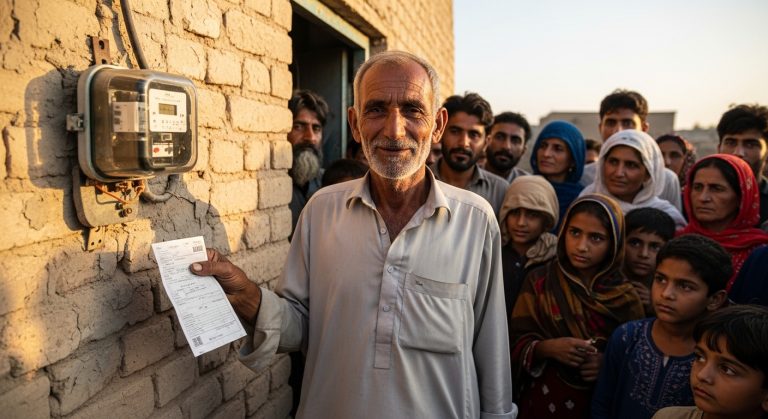UPS Prices in Pakistan 2025 – Price Range with Brand
Power interruptions are a daily challenge in many parts of Pakistan. Whether you’re looking for protection for your home appliances or essential backup for your office equipment, a UPS (Uninterruptible Power Supply) can be a lifesaver. Let’s break down the market landscape of UPS systems in Pakistan for 2025, exploring price ranges across brands, capacities, and features.
1. Overall UPS Price Range
- Entry-level and Mini UPS: Simple models perfect for small electronics start at approximately ₨8,000–₨12,000. These offer basic power protection without extended runtime.
- Mid-tier Inverter-UPS Systems: With added features and better battery management, prices begin around ₨20,000.
- High-capacity (1000W+) UPS: More powerful models, suitable for heavier usage, typically range from ₨25,000 to ₨35,000.
- Premium Systems (2000W and above): For heavy-duty needs, prices start near ₨40,000 and climb higher based on capacity and features.
- Online and Hybrid Solar UPS: Online UPS systems (1000–3000 VA) tend to cost between ₨43,000 and ₨98,000, while Hybrid Solar UPS systems (3000 VA+) may vary from ₨90,000 to ₨160,000.
2. Brand Highlights & Specific Offers
Homage
- BOLT Series Solar UPS (12V): Available at around ₨158,300.
- 1000W (1200 VA/1000W) Model: The Homage HVS-1214SCC is listed for about ₨65,500.
- Higher-end 5.6 kW Solar Inverter: Priced at roughly ₨199,742, best suited for larger, hybrid-based setups.
APC (American Power Conversion)
- Back-UPS 1100 VA: Around ₨40,000.
- Smart UPS 1500 VA: Retailing for approximately ₨90,750.
- Smart UPS RC 3000 VA: Available at about ₨160,000.
SIMTEK
- Deluxe 1500 VA: Priced at ₨37,000 as of early August 2025.
- 2000 VA Model: Listed around ₨40,500.
Stabimatic
- Gemini 650 VA: Available for around ₨13,700, ideal for basic PC backup.
- Gemini 1250 VA: At about ₨25,800.
- Gemini 2000 VA: Around ₨38,500.
- On-line Series (2000–3000 VA): Costs increase accordingly, especially with advanced features.
3. Price Overview Table
| Category | Typical Price (PKR) |
|---|---|
| Mini UPS (entry-level) | ₨8,000–₨12,000 |
| Mid-tier inverter UPS | ₨20,000+ |
| 1000W UPS (approx.) | ₨25,000–₨35,000 |
| 2000W UPS and above | ₨40,000+ |
| Homage Solar UPS (Bolt Series) | ₨158,300 |
| Homage 1 kW Model | ₨65,500 |
| Homage 5.6 kW Solar Inverter | ₨199,700–₨200,000 |
| APC Back-UPS 1100 VA | ₨40,000 |
| APC Smart-UPS 1500 VA | ₨90,750 |
| APC Smart-UPS 3000 VA | ₨160,000 |
| SIMTEK 1500 VA | ₨37,000 |
| SIMTEK 2000 VA | ₨40,500 |
| Stabimatic 650 VA | ₨13,700 |
| Stabimatic 1250 VA | ₨25,800 |
| Stabimatic 2000 VA | ₨38,500 |
| Online UPS (1000–3000 VA) | ₨43,000–₨98,000 |
| Hybrid Solar UPS (3000 VA+) | ₨90,000–₨160,000 |
4. What Influences UPS Prices?
- Power Capacity (VA or Watts): Higher capacity alerts higher cost.
- Type of UPS:
- Offline/Line-Interactive: Simplest and cheaper.
- Online Double-Conversion: High reliability; prices increase significantly.
- Hybrid Solar Compatibility: Adds value for extended use with solar systems.
- Brand Prestige: Premium names like APC and Homage bring premium prices.
- Features: Pure sine-wave output, AVR protection, smart battery management, and LCD panels can influence cost.
5. Guidance for Buyers
- For Basic Home Needs: A Mini or basic 650–1000 VA unit in the ₨13,000–₨25,000 range provides reliable backup.
- For Home Offices / Appliances: Aim for 1500–2000 VA units (e.g., SIMTEK or Stabimatic), priced around ₨35,000–₨40,000.
- High-end / Critical Load Scenarios: Consider online or hybrid UPS systems from APC or Homage, though prices can range from ₨90,000 up to ₨200,000+.
- Solar-Ready Setup: Homage’s BOLT series and 5.6kW hybrid models provide full solar integration for long-term resilience, albeit at a premium price.
Final Thoughts
Pakistan’s UPS market in 2025 offers a full spectrum—from budget-friendly mini units to state-of-the-art solar-compatible systems. You can get a dependable UPS for as low as ₨8,000, while advanced hybrid-inverter models run up to ₨200,000. Your choice depends on capacity needs, features, and whether you plan to connect to solar systems. With these insights, you’ll be well-equipped to match your budget with your power backup needs.






